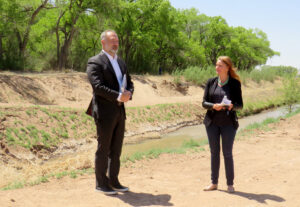Critics cite concerns over oil-and-gas ‘credit schemes’ said to help environment

Forty-three lawsuits have been waged against more than 200 energy-related companies in Louisiana since 2013, and many, if not all, are angling for cash settlements with environmental credit schemes.
Similar credit initiatives have failed to deliver in other states, critics note, and the cap-and-trade style system of buying and selling environmental credits requires legislative approval before lawsuit settlement money can be put to use.
An April 2021 memo authored by the New Orleans-based Pelican Institute highlighted several issues in two legislative bills that would establish a central Coastal Zone Restoration Fund and credit-trading structure in Louisiana.
The bills – House Bill 569 and Senate Bill 233 – did not pass during the 2021 regular legislative session, but they are expected to return in 2022 as hundreds of millions of dollars hang in the balance from the cascade of lawsuits.
One company has settled so far. International mining giant Freeport McMoRan agreed to a $100 million payout earlier this year that would filter through the proposed credit system and operate similar to greenhouse gas emission trading programs.
The Freeport McMoRan settlement also serves as a potential blueprint for ongoing litigation, and the attached credit scheme may serve as an enticement for other companies to settle as they could recover a portion of settlement losses through the sale of credits. Such arrangements, however, often are unpredictable.
“Studies show that environmental credit generating schemes fail to deliver on their promises of creating revenue and reducing environmental harm,” the Pelican Institute memo read.
The document cited a Cato Institute review of a similar program in California that delivered only $8.2 million of a projected $600 million in credit sales associated with a high-speed rail.
Another program tied to nine northeastern and mid-Atlantic states, called the Regional Greenhouse Gas Initiative, was supposed to reduce carbon dioxide emissions from power plants by 30% through the buying and selling of credits.
The Institute for Energy Research, however, found the scheme was costly and had no effect, as “carbon emissions in the participating states were reduced at the same rate as emissions in non-participating states.”
Sarah Harbison, general counsel for the Pelican Institute, further noted the framework outlined in the proposed Louisiana legislation only guarantees 60% of restoration funds would be dedicated to the state’s “Coastal Master Plan.”
“The remainder of the funds, to the extent they materialize, could be used for pet projects within the settling parishes,” Harbison said in reference to the roughly half dozen parishes involved in suing the energy companies.
Under the Freeport McMoRan plan, the company would pay $23.5 million to the Coastal Zone Recovery Fund over the first three years of the 20-year settlement period. The money would go toward coastal restoration projects and generate environmental credits that then could be sold to offset Freeport’s remaining $76.5 million obligation.
The credits could be purchased by other developers who are subject to environmental mitigation requirements. So-called “mitigation banks” would theoretically ensure habitat restoration by allowing developers and entities required to mitigate their environmental footprints to buy credits from existing restoration projects.
Credits also could be sold at a profit or at discounted rates for future environmental liabilities, effectively lessening the original oil-and-gas lawsuit settlement amounts – and by extension, the original amount dedicated to coastal restoration.
According to the proposed legislation, the complicated scheme would be overseen by the Coastal Zone Recovery Authority (CZRA) – a body involving an executive board and located within the office of Gov. John Bel Edwards, a staunch advocate of the oil-and-gas lawsuits.
“Of particular interest, the legislation grants the board sweeping authority to establish guidelines, rules, and regulations for the environmental credit bank program, including assigning value to the credits,” the Pelican memo read.
The dozens of environmental lawsuits mostly emanate from private attorneys representing seven local governments, though the state also is involved.
A significant development recently occurred in federal court in the Western District of Louisiana, where oral arguments were heard in Parish of Cameron, et al. v. Auster Oil & Gas Incorporated, et al.
The hearing deals with a jurisdictional dispute: whether the case should be heard in federal court or state court. The matter is fundamental as the lawsuits generally allege the energy defendants – which include some of the world’s largest oil companies, such as Shell, BP and Exxon Mobile –violated a state law enacted in 1978.
The Louisiana State and Local Coastal Resources Management Act requires energy developers to obtain and follow state-issued coastal permits, which the lawsuits allege the companies failed to do.
Oil-and-gas defendants were able to move the cases to federal court in 2018 after the plaintiff’s revealed the alleged violations occurred under federal authorization and included many activities that took place before the state law.
The 5th U.S. Circuit Court of Appeals ruled in August the district court needed to revisit the question of jurisdiction. State courts are viewed as more favorable to the local government lawsuits, whereas federal courts may be more apt to consider oil-and-gas activities that were legal according to federal law.
This article was originally posted on Critics cite concerns over oil-and-gas ‘credit schemes’ said to help environment







